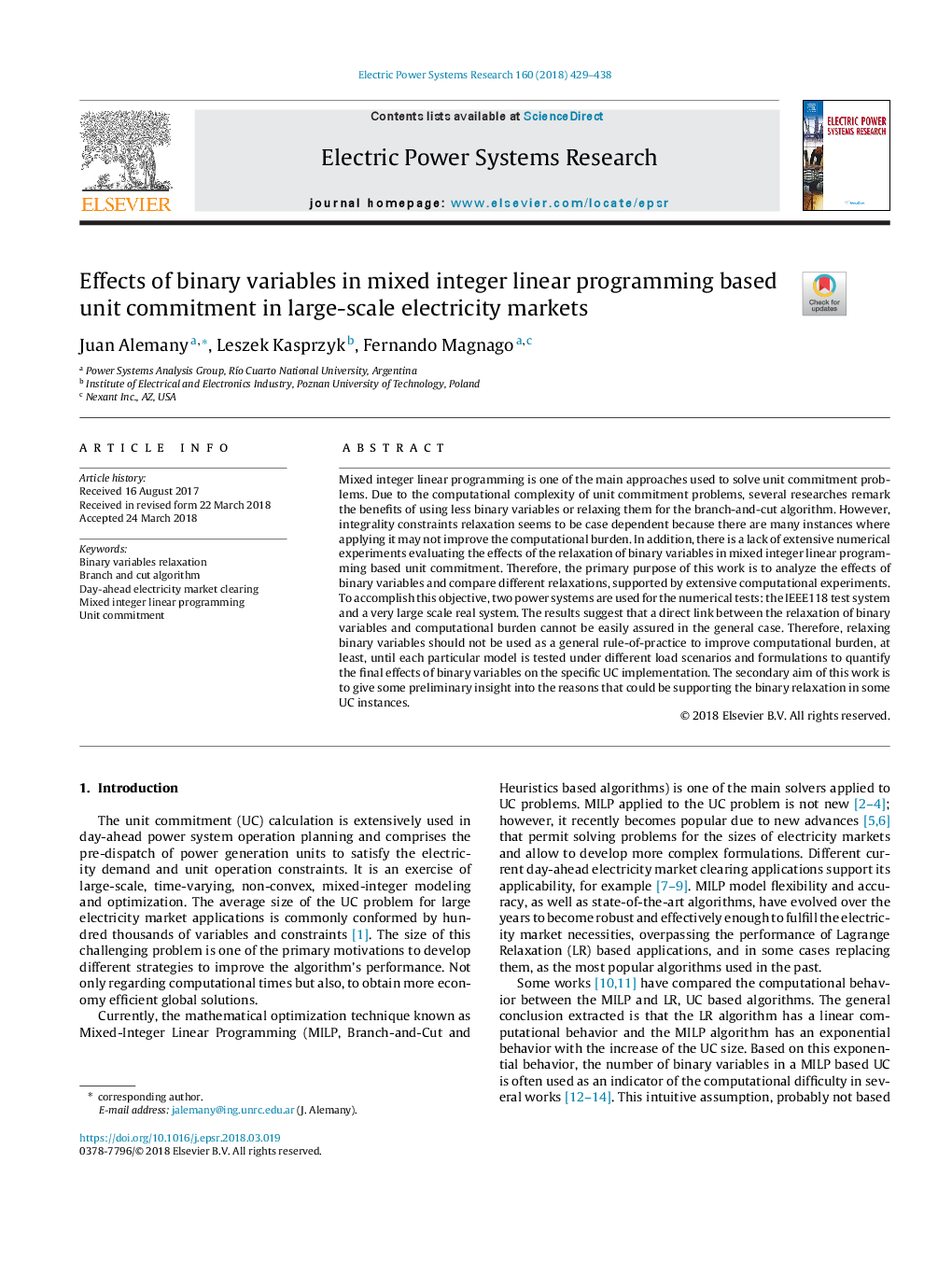ترجمه فارسی عنوان مقاله
اثرات متغیرهای باینری در تعهد واحد مبتنی بر برنامه نویسی خطی مختلط در بازارهای برق بزرگ مقیاس
عنوان انگلیسی
Effects of binary variables in mixed integer linear programming based unit commitment in large-scale electricity markets
| کد مقاله | سال انتشار | تعداد صفحات مقاله انگلیسی |
|---|---|---|
| 111731 | 2018 | 10 صفحه PDF |
منبع

Publisher : Elsevier - Science Direct (الزویر - ساینس دایرکت)
Journal : Electric Power Systems Research, Volume 160, July 2018, Pages 429-438
ترجمه کلمات کلیدی
آرام سازی متغیرهای دودویی، شعبه و الگوریتم برش، پاکسازی بازار برق روز بعد، برنامه ریزی خطی زنجیره ای مختلط، تعهد واحد،
کلمات کلیدی انگلیسی
Binary variables relaxation; Branch and cut algorithm; Day-ahead electricity market clearing; Mixed integer linear programming; Unit commitment;

